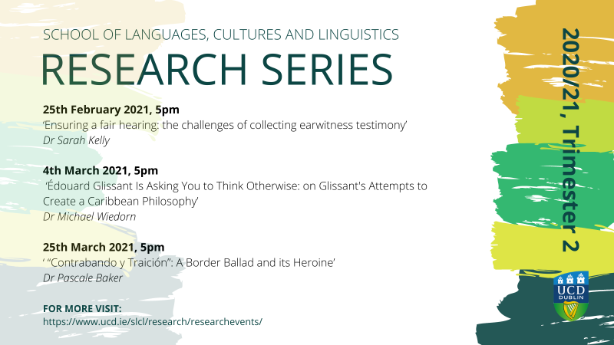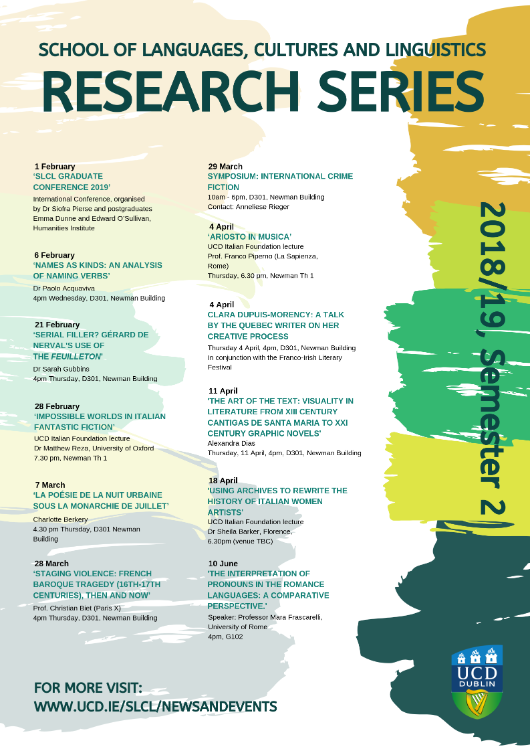2025/26 Research Events
Monday 22nd September, 3 pm, Newman Building Room D301 (in person and via Zoom)
Speaker: Grace Wenling Cao (UCD)
Title:One city, whose languages? Changing language attitudes in Hong Kong
Abstract:Political scientist Pelinka (2007) argues that language is political, as language reflects power structures and social and political situations. When a society experiences social and political upheavals, power dynamics between different languages in this society are likely to be altered, leading to changes in people’s use of and attitudes towards these languages. This talk focuses on Hong Kong people’s attitudes towards Cantonese, Mandarin, and different localized varieties of English (i.e. Hong Kong and China English) using both the verbal-guise and matched-guise methods in sociolinguistics. On the one hand, this project tries to capture the changes in language attitudes among people in Hong Kong from 2017 to 2021. On the other hand, it also seeks to uncover the role of identity in these changes. This study suggests that although Hong Kong identity consolidated from 2017 to 2021, the dynamics between Cantonese and Mandarin remained the same; more precisely, Cantonese was perceived as less prestigious but more friendly than Mandarin in both surveys. Identity had an impact on language attitudes, particularly for those who had an exclusive Hong Konger identity. In addition, people’s negative attitudes towards China English in comparison to Mandarin suggest that China English might have suffered from double stigmatization in Hong Kong due to its non-standard form and prevailing anti-Chinese sentiments.
Monday 6th October, 3 pm, Newman Building Room D301 (in person and via Zoom)
Speaker:Maxwell Hartt (Queen’s University, Canada – Craig Dobbin Visiting Scholar)
Title: Aging Playfully: Reimagining Later Life Through Play (and Planning)
Abstract: In city planning, as in society, play is considered to be an activity only for children. But why? Play is a fundamental aspect of human nature. Moreover, it has incredible physical and mental benefits for people of all ages. In the public realm, play can cultivate, connect, and support relationships and community cohesion. I argue that play is particularly well suited to support the health and wellbeing of people as they age in older adulthood and should be considered a key planning consideration of age-friendly communities. Investigating the relationship between play, space, and older adult wellbeing offers an opportunity to challenge societal assumptions and expectations regarding later life, to reimagine the possibilities of play, and to rethink the potential of age-friendly communities.
Speaker:Miguel Ibañez Aristondo (Universidad Complutense de Madrid and UCD)
Title:Imperial Ecologies and Anticolonial Ways of Seeing in Caribbean Plantation Modernities
Abstract:Colonialism reshapes ways of seeing the land, transforming landscapes into objects of control, possession, and extraction. This presentation traces this process in the visual cultures of nineteenth-century Caribbean plantation modernities, examining how imperial visions of progress were encoded in representations of steam-powered mills, colonial railroads, and the reorganization of nature and enslaved labor under the sign of industrial modernities. Alongside these dynamics, it foregrounds anticolonial ways of seeing that contested these visual regimes, exposing how plantation aesthetics sought to naturalize efficiency and order while concealing structural violence. By tracing these tensions, the presentation proposes to discuss the visual archaeology of the plantation as a space where imperial ecologies were simultaneously aestheticized and challenged.

